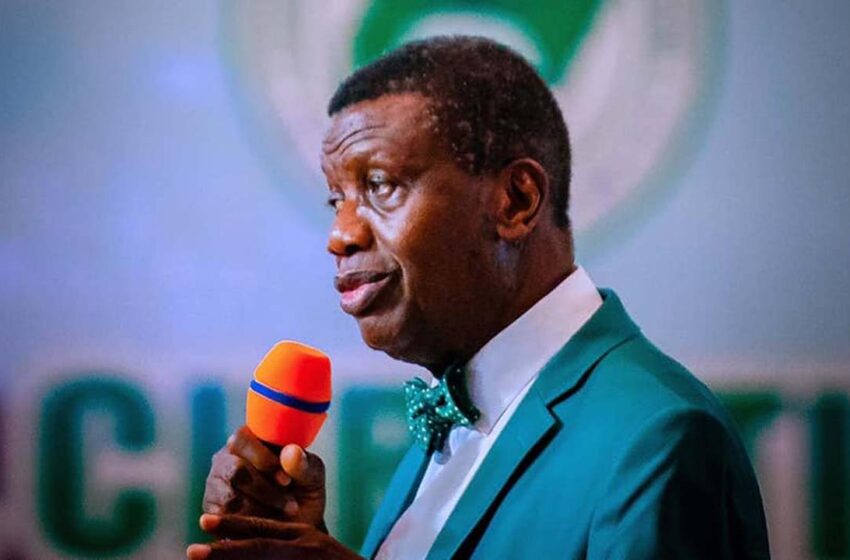Adeboye rejects ailing African President’s Invitation: What you need to know

Adeboye Rejects Ailing African President’s Invitation
Pastor Enoch Adeboye, the renowned General Overseer of the Redeemed Christian Church of God (RCCG), has publicly turned down a request from an unnamed ailing African head of state seeking spiritual intervention. Speaking during the July Holy Ghost Service at Redemption City, Mowe, Ogun State, Adeboye affirmed that his decision stemmed from a fully booked schedule and the conviction that “there is one Excellence who is more excellent than the other.” His bold stance, coupled with another declaration that insults won’t derail his mission, has sparked widespread attention.
A Presidential Plea Met with Graceful Refusal
During his sermon, Adeboye revealed he received a direct request to visit the president’s country for a ministerial mission. “I said tell the excellency that I’m very busy… my calendar was already full for the year,” he recounted. He admitted the president had exhausted all medical options but chose spiritual intervention when conventional treatments failed.
Rather than offend, Adeboye responded tactfully, emphasizing divine authority and timing. He allowed his team to communicate his inability to go personally. Notably, the sick leader reportedly turned towards the RCCG campground for solutions, and within the same timeframe, “God solved the problem,” Adeboye shared, underlining his faith in God’s sovereignty.
“Insults Won’t Derail My Mission” – Adeboye
Adeboye moved from discussing the invitation to addressing recent waves of criticism directed at him. He advised that “anger is temporary madness,” cautioning followers against losing their peace under provocation. “There are many of you … saying all kinds of nonsense about me and waiting for me to get angry one day. That is what they are planning but I’m going to reach my goal,” he declared firmly.
This statement of emotional resilience reinforces his commitment to steady leadership. Despite verbal attacks and rumors, he vowed to remain steadfast, unaffected by detractors. This move resonated with many Nigerians who see him as a model of patience and spiritual discipline.
Implications of Adeboye’s refusal for Faith and Leadership
Adeboye’s refusal to visit a sitting president, especially one in desperate need, breaks from common pastoral practice where spiritual leaders often respond to calls from high-ranking officials. By setting firm boundaries, he emphasizes the importance of spiritual integrity over political expediency. His stance raises broader questions about the roles and limits of religious authority in African governance models and crisis management.
Furthermore, his transparency in sharing details signals a leadership style rooted in accountability rather than secrecy. Many observers laud this as a “teaching moment” for the church and public figures on balancing public calling with private conviction and logistical reality.
Reactions Across Church and Political Circles
Social media and news outlets were quick to amplify Adeboye’s message, and followers applauded his humility and faith-led decision. Church members praised his leadership, echoing sentiments that “no insult, invitation, or acclaim will distract” the man they describe as God’s servant.
In political spheres, analysts interpret the act as a subtle shift in church-state protocol, highlighting a possible recalibration of spiritual influence on state affairs. Though the president in question remains unnamed, the incident underscores tension between spiritual intervention and sovereign autonomy in African politics.
READ MORE
Pope Leo XIV: What the church, the world could expect from first American pope
Looking Ahead: Faith, Influence, and Authority
Adeboye’s narrative sets a precedent: spiritual leaders can engage with political systems without sacrificing principle. His emphasis on refusing undue pressure while still claiming spiritual authority could influence how pastors respond to calls from political offices in future.
As he continues to lead the RCCG and impact millions globally, this event may shape expectations around pastoral boundaries and engagement with national leaders. It also positions Adeboye as a symbol of measured powerfirm yet faithful, unyielding yet respectful.
Pastor Adeboye’s decision to decline a presidential invitation and his declaration against being provoked by insults have sparked widespread conversations across faith communities and political spheres. His approach, balancing spiritual convictions with personal discipline, resonates as a teaching on emotional mastery and leadership integrity.
As both churchgoers and politicians reflect on this episode, one thing remains clear: Adeboye’s influence goes beyond sermons; it shapes discourse on the interplay between faith, governance, and personal resolve in Africa today.

